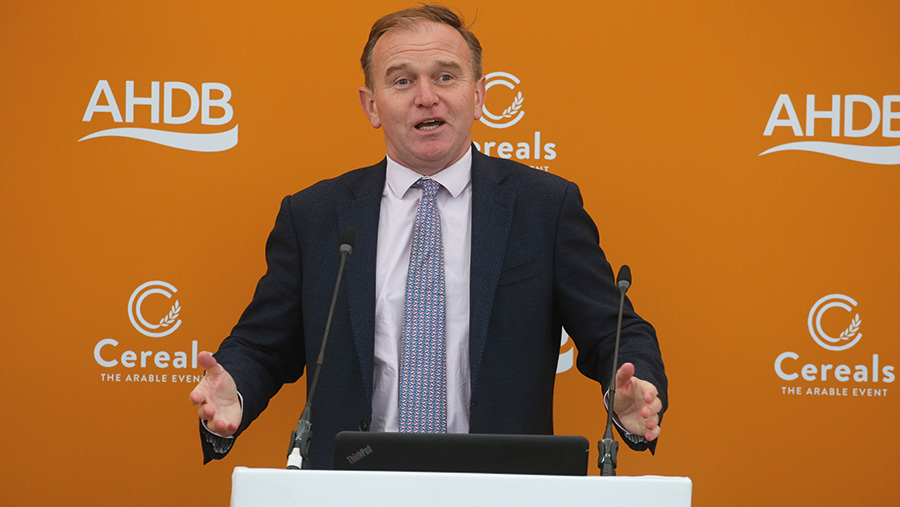Cereals 2021: Defra pledges 30% uplift in soil health payments
 © Tim Scrivener
© Tim Scrivener Support payments for farmers who improve soil health will be some 30% higher under the government’s new environmental scheme for England, Defra has pledged.
But farmers are being warned that they should pursue other revenue streams as well to replace income lost from the Basic Payment Scheme (BPS), which is being phased out and will disappear completely by 2028.
Payment rates for the new Sustainable Farming Incentive (SFI) were confirmed by Defra secretary George Eustice on Wednesday (30 June).
See also: 5 fundamentals to achieve healthy soils
It was important to properly recognise farmers’ efforts to look after the environment, he said in a speech at the Cereals event.
“The payment rates… roughly equate to a 30% uplift on what would have been the case had the old EU methodology been applied,” Mr Eustice told listeners at Boothby Graffoe, Lincolnshire.
Farmers joining the SFI from 2022 will be paid some £26/ha for the most elementary level of soil management to about £70/ha for increasing soil organic matter, said Mr Eustice.
There will also be a mid-level payment between the two, he added.
Successful farming
Speaking later, Mr Eustice said Defra had deliberately focused on soil health because it was the basis of successful farming.
The government target was for 70% of farmers to sign up to the new scheme – similar to the proportion currently in Entry Level Stewardship.
Mr Eustice said the scheme had been devised so farmers who were seeing their BPS payment reducing would have an opportunity to recoup that money – and more besides – for embracing more sensible approaches to soil health and management.
With a 12% reduction in BPS already introduced for 2021, income streams such as the SFI are set to be increasingly important for farmers. B
ut so too are other business strategies, including collaboration, diversification and efficiency improvements.
Reducing costs
Richard Means, of farm business consultants Ceres Rural, said reducing costs would be a priority on most farms. But any changes should be gradual to maintain margins.
“Low-input systems only work where soils are functioning well and management is top notch.”
An impact assessment by Strutt & Parker suggests that a typical arable farmer could see net farm profits drop by 54% even if profits from future environmental schemes are double those generated from existing payments.
Jonathan Armitage, head of farming at Strutt & Parker, said there would be opportunities as well as challenges.
He added: “The reality is that many businesses need to carry out a major reappraisal of their farming policy to prepare for the next chapter.”
Environmental groups have also voiced caution over the new scheme.
Vicki Hird, head of farming at Sustain, said enhanced payments were welcome and soil was a logical starting point.
But smaller farms and horticultural growers were unlikely to benefit.

